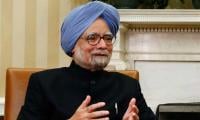KARACHI: The Supreme Court is set to announce its verdict in the PTI-SIC reserved seats case today. Legal experts say that if the reserved seats are neither allocated to the SIC nor the other parties in parliament, leaving the seats vacant is not a viable option and could open up a whole other can of constitutional problems.
On Thursday, Chief Justice of Pakistan Qazi Faez Isa chaired a special session of the SC’s 13-member full bench for a second round of consultations on the reserved seats case. According to a cause list issued on the SC website, a full-court bench will announce the short ruling at 12pm today. The SC had reserved its judgment on the Sunni Ittehad Council’s (SIC) appeal against the Peshawar High Court (PHC) verdict denying them reserved seats for women and minorities in the national and provincial assemblies.
For context, on February 19, PTI-affiliated independent candidates had joined the Sunni Ittehad Council (SIC) to secure their share of reserved parliamentary seats. The PTI-SIC alliance then applied for these seats, but in March, the ECP denied their request and redistributed the seats to other parties, with PML-N and PPP gaining 16 and 5 seats respectively. The SIC appealed to the PHC, which upheld the ECP’s decision. The SIC then approached the Supreme Court, which suspended the PHC’s verdict and the ECP’s decision on June 6. Consequently, the ECP suspended the victory notifications of 77 national and provincial assembly members elected on those seats.
The possible options now are: one, the SIC gets the seats; two, the SIC doesn’t get the seats and the seats are distributed among the other parties; and three, neither the SIC nor the other parties get the seats.
Ahead of today’s verdict, The News asked lawyers and constitutional experts what they felt would happen if the seats were neither given to the PTI-SIC nor the other parties. What would be the status of the assemblies then? Would that mean these assemblies would function at lower strength? Is there anything in law or procedure that envisages this situation? And especially given these are special seats, would it not be unfair in terms of equality and discrimination for these seats to remain vacant? Can a seat remain vacant this way?
Responding to the questions, PILDAT President Ahmed Bilal Mehboob says that he thinks the seats will not remain vacant. “And I feel they shouldn’t remain vacant. If the verdict determines that the seats cannot go to the SIC, the seats should be distributed among the other parties that are in parliament. For those who consider this wrong, the fact is that this wrong stems from the original/first wrong. It would be incorrect to stop here and say we won’t give the seats to the SIC but also not to the other parties. This doesn’t make sense to me. I don’t think there’s a third option. Keeping the seats vacant in my opinion is not a legitimate option.”
Barrister Rida Hosain agrees, adding that “in the current circumstances, it would be unjust to leave the seats vacant. As became clear during the hearings, PTI candidates were required to contest as ‘independents’ on account of an ECP decision. The ECP’s conduct must not result in a political party being denied its rightful voice in the assembly.”
Lawyer Akram Khurram, who specialises in election law, says we are confronted with an interesting dilemma here. “Till now, the court’s observations have noted how things are ‘very clear in the book’. So let’s see what ‘the book’ says. If we go by the text of the law, there is no second option: articles 51 and 106 of the constitution when read with Rule 94 of the Election Rules, 2017 make it clear how the reserved seats are to be allotted: based on proportionality.”
Rule 94 says: “(1) The Commission shall, by notification in the official Gazette, declare the total number of reserved seats won by each political party in the National Assembly and the Provincial Assemblies respectively. (2) The per centum share of each political party shall be worked out with reference to total number of general seats in the National Assembly, or, as the case may be, the respective provincial assembly.”
This, says Khurram, means that if the SIC doesn’t get the reserved seats then those seats can’t go to other parties either: since that would not be in accordance with the proportionality principle.
On whether a seat can remain vacant this way, Mehboob clarifies that “there are situations in which a few seats may remain vacant throughout the term of the assembly. For example, if one part of the country faces a law and order issue and elections can’t be held there: those seats will remain vacant. But here -- in this situation -- we don’t have such an issue.”
Barrister Rida concludes with a reminder: “The legislature must reflect the will of the people. Under our constitutional scheme, a political party is entitled to reserved seats based on its proportional strength of general seats – this ensures that the balance determined by the electorate is maintained. While the rationale for reserved seats is to give underrepresented groups such as women and minorities positive representation in the assemblies, the core constitutional principle is proportionality and a representative legislature.”
Led by the CJP, the 13-member full court that will announce the verdict today includes Justice Syed Mansoor Ali Shah, Justice Munib Akhtar, Justice Yahya Afridi, Justice Aminuddin Khan, Justice Jamal Khan Mandokhail, Justice Muhammad Ali Mazhar, Justice Ayesha Malik, Justice Athar Minallah, Justice Hasan Azhar Rizvi, Justice Shahid Waheed, Justice Irfan Saadat Khan, and Justice Naeem Akhtar Afghan.
Five thousand kilogrammes of hashish, heroin, bhang and ice worth Rs2,634.44 million were destroyed
Programme approved during recent UAE government annual meetings under directives of Emirates Genome Council
Atta Tarar congratulated Pakistan team on winning ODI series against South Africa
PIA spox says airline was working to rejuvenate its aircraft, bringing them back into operational fleet
Authorities confirm driver’s death, saying he “committed suicide while the train was moving”
Murad stresses need to protect country from external conspiracies, in line with Jinnah’s vision







